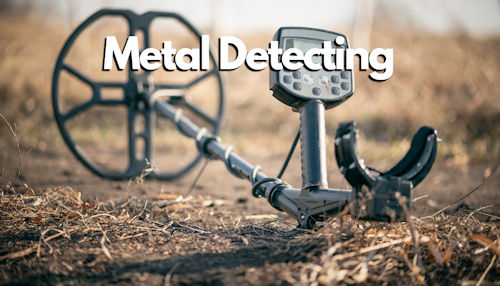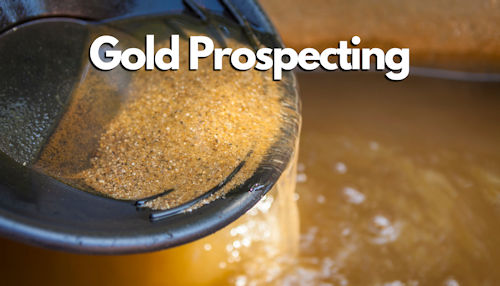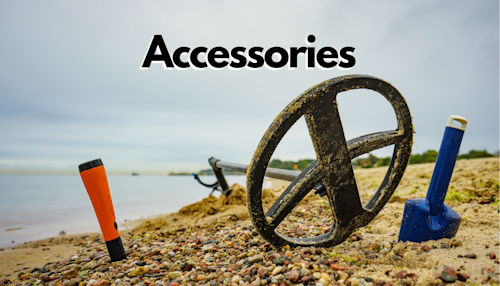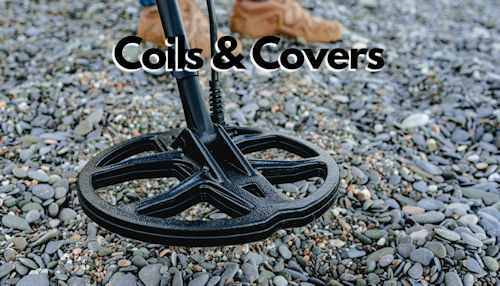Beach metal detecting tips and tricks
Quote from Big D on April 15, 2025, 9:29 amBeach metal detecting can be super fun and even a little addictive once you get the hang of it. Whether you're looking for coins, jewelry, relics, or just cool stuff, here are some solid tips and tricks to help you make the most of your time out there:
🏖️ Best Places to Detect on a Beach
Towel Line / Dry Sand
This is where people lay out their stuff—and often drop things like coins, jewelry, or phones.Wet Sand (Low Tide)
This area is hit by the tide, so it can uncover older targets and bring new ones in. A good machine with ground balance and saltwater compatibility is essential here.In the Water
Requires a waterproof detector and scoop, but often pays off big—people lose rings and necklaces all the time while swimming.Paths to and from the beach
Great for coins and other dropped items. People fumble with bags, flip-flops, and phones while walking.Around Beach Amenities
Near lifeguard stations, volleyball courts, picnic areas, etc.
⚙️ Gear Tips
Detector: Use a detector designed for saltwater if you're near the ocean. VLFs with ground balancing are good, but PI (Pulse Induction) machines go deeper and ignore most mineralization.
Scoop: A good sand scoop is a must, especially for wet sand. Stainless steel or aluminum with holes works best.
Headphones: Block out the wind and waves so you can hear faint signals.
Pinpointer: Speeds up recovery but not always necessary at the beach.
🕒 Best Times to Detect
After a storm: Nature does the digging for you. Storms move sand and expose buried targets.
Early morning / Late evening: Less crowded and you’ll get first dibs on fresh drops.
Low tide: Reveals more of the wet sand zone and exposes targets usually underwater.
🧠 Strategy & Technique
Grid your search: Pick a section and work it systematically (e.g., left to right, overlap your swings).
Slow & steady: Don't rush your swing. Go slow to cover more area thoroughly.
Listen carefully: Learn your detector's tones—sometimes valuable targets sound like junk.
Dig it all (at first): Until you know how your machine sounds, dig every target to learn.
💡 Pro Tips
Keep notes: Jot down where and when you find things—it helps you recognize patterns.
Check tides ahead of time: Apps or websites like Tideschart.com help you plan the best time.
Respect others: Be mindful of sunbathers and fill your holes—it’s good etiquette and some beaches require it.
Local rules: Some beaches restrict detecting—check local laws or park rules.
Beach metal detecting can be super fun and even a little addictive once you get the hang of it. Whether you're looking for coins, jewelry, relics, or just cool stuff, here are some solid tips and tricks to help you make the most of your time out there:
🏖️ Best Places to Detect on a Beach
-
Towel Line / Dry Sand
This is where people lay out their stuff—and often drop things like coins, jewelry, or phones. -
Wet Sand (Low Tide)
This area is hit by the tide, so it can uncover older targets and bring new ones in. A good machine with ground balance and saltwater compatibility is essential here. -
In the Water
Requires a waterproof detector and scoop, but often pays off big—people lose rings and necklaces all the time while swimming. -
Paths to and from the beach
Great for coins and other dropped items. People fumble with bags, flip-flops, and phones while walking. -
Around Beach Amenities
Near lifeguard stations, volleyball courts, picnic areas, etc.
⚙️ Gear Tips
-
Detector: Use a detector designed for saltwater if you're near the ocean. VLFs with ground balancing are good, but PI (Pulse Induction) machines go deeper and ignore most mineralization.
-
Scoop: A good sand scoop is a must, especially for wet sand. Stainless steel or aluminum with holes works best.
-
Headphones: Block out the wind and waves so you can hear faint signals.
-
Pinpointer: Speeds up recovery but not always necessary at the beach.
🕒 Best Times to Detect
-
After a storm: Nature does the digging for you. Storms move sand and expose buried targets.
-
Early morning / Late evening: Less crowded and you’ll get first dibs on fresh drops.
-
Low tide: Reveals more of the wet sand zone and exposes targets usually underwater.
🧠 Strategy & Technique
-
Grid your search: Pick a section and work it systematically (e.g., left to right, overlap your swings).
-
Slow & steady: Don't rush your swing. Go slow to cover more area thoroughly.
-
Listen carefully: Learn your detector's tones—sometimes valuable targets sound like junk.
-
Dig it all (at first): Until you know how your machine sounds, dig every target to learn.
💡 Pro Tips
-
Keep notes: Jot down where and when you find things—it helps you recognize patterns.
-
Check tides ahead of time: Apps or websites like Tideschart.com help you plan the best time.
-
Respect others: Be mindful of sunbathers and fill your holes—it’s good etiquette and some beaches require it.
-
Local rules: Some beaches restrict detecting—check local laws or park rules.
![]()







